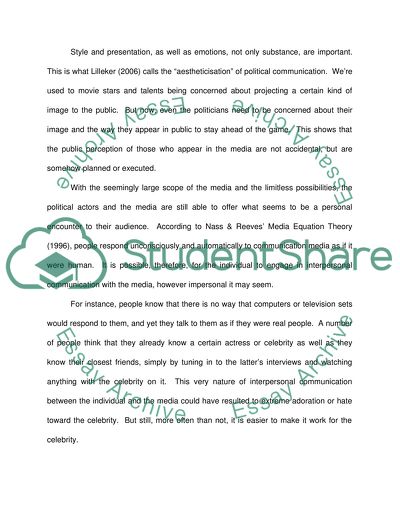Cite this document
(“Political Communication and Media Reportage Essay”, n.d.)
Retrieved from https://studentshare.org/politics/1513157-political-communication-and-media-reportage
Retrieved from https://studentshare.org/politics/1513157-political-communication-and-media-reportage
(Political Communication and Media Reportage Essay)
https://studentshare.org/politics/1513157-political-communication-and-media-reportage.
https://studentshare.org/politics/1513157-political-communication-and-media-reportage.
“Political Communication and Media Reportage Essay”, n.d. https://studentshare.org/politics/1513157-political-communication-and-media-reportage.


